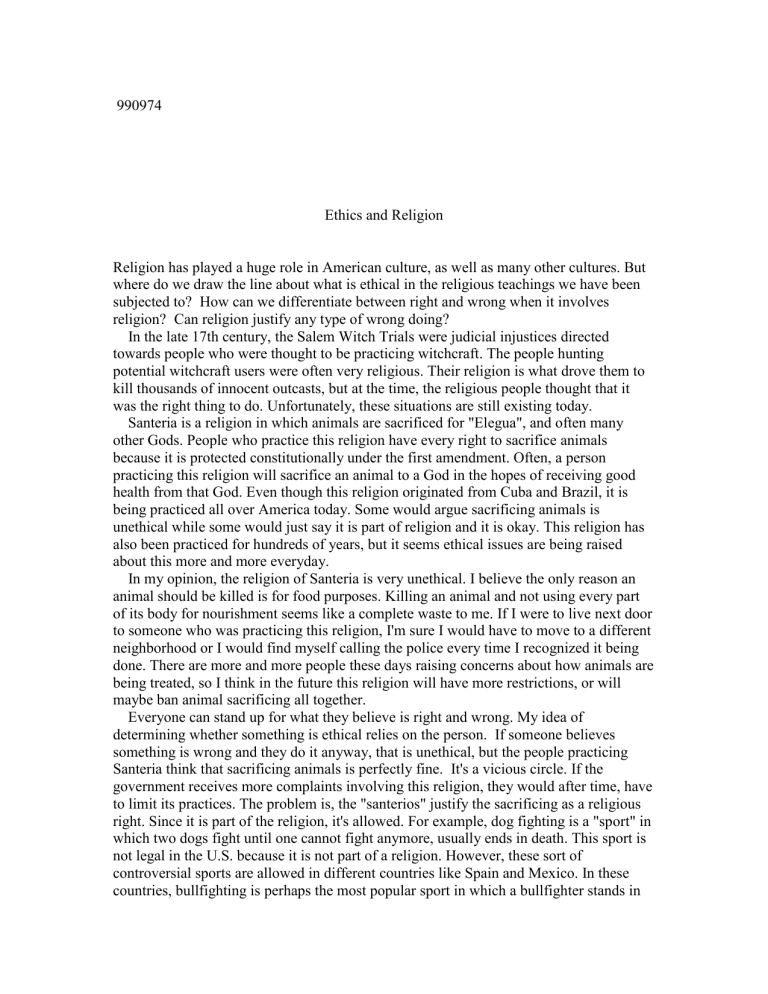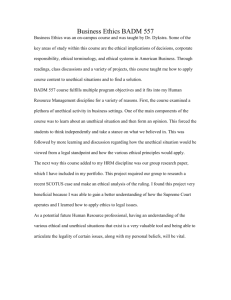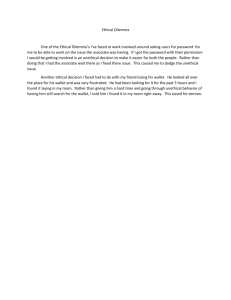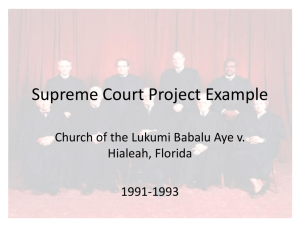990974

990974
Ethics and Religion
Religion has played a huge role in American culture, as well as many other cultures. But where do we draw the line about what is ethical in the religious teachings we have been subjected to? How can we differentiate between right and wrong when it involves religion? Can religion justify any type of wrong doing?
In the late 17th century, the Salem Witch Trials were judicial injustices directed towards people who were thought to be practicing witchcraft. The people hunting potential witchcraft users were often very religious. Their religion is what drove them to kill thousands of innocent outcasts, but at the time, the religious people thought that it was the right thing to do. Unfortunately, these situations are still existing today.
Santeria is a religion in which animals are sacrificed for "Elegua", and often many other Gods. People who practice this religion have every right to sacrifice animals because it is protected constitutionally under the first amendment. Often, a person practicing this religion will sacrifice an animal to a God in the hopes of receiving good health from that God. Even though this religion originated from Cuba and Brazil, it is being practiced all over America today. Some would argue sacrificing animals is unethical while some would just say it is part of religion and it is okay. This religion has also been practiced for hundreds of years, but it seems ethical issues are being raised about this more and more everyday.
In my opinion, the religion of Santeria is very unethical. I believe the only reason an animal should be killed is for food purposes. Killing an animal and not using every part of its body for nourishment seems like a complete waste to me. If I were to live next door to someone who was practicing this religion, I'm sure I would have to move to a different neighborhood or I would find myself calling the police every time I recognized it being done. There are more and more people these days raising concerns about how animals are being treated, so I think in the future this religion will have more restrictions, or will maybe ban animal sacrificing all together.
Everyone can stand up for what they believe is right and wrong. My idea of determining whether something is ethical relies on the person. If someone believes something is wrong and they do it anyway, that is unethical, but the people practicing
Santeria think that sacrificing animals is perfectly fine. It's a vicious circle. If the government receives more complaints involving this religion, they would after time, have to limit its practices. The problem is, the "santerios" justify the sacrificing as a religious right. Since it is part of the religion, it's allowed. For example, dog fighting is a "sport" in which two dogs fight until one cannot fight anymore, usually ends in death. This sport is not legal in the U.S. because it is not part of a religion. However, these sort of controversial sports are allowed in different countries like Spain and Mexico. In these countries, bullfighting is perhaps the most popular sport in which a bullfighter stands in
the middle of an arena, and a bull is let loose. The bullfighter will then attempt to drive swords in the bull until it is dead.
It is hard to determine whether Santeria is right or wrong because it is a religion, and in
America we have the right to practice any religion we choose. Just like in the 17th century, the Salem Witch Trials were allowed to occur because of religious beliefs driving people to be superstitious. Everybody has free will and should stand up for what they believe in.









